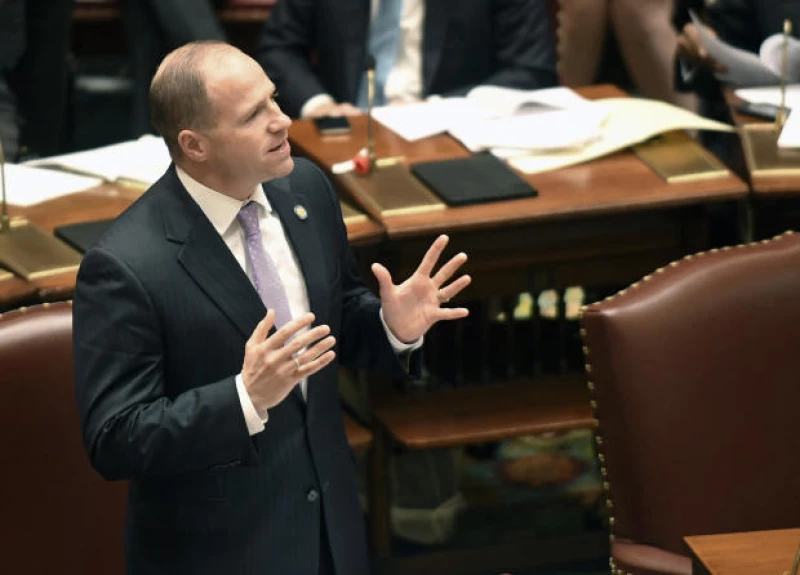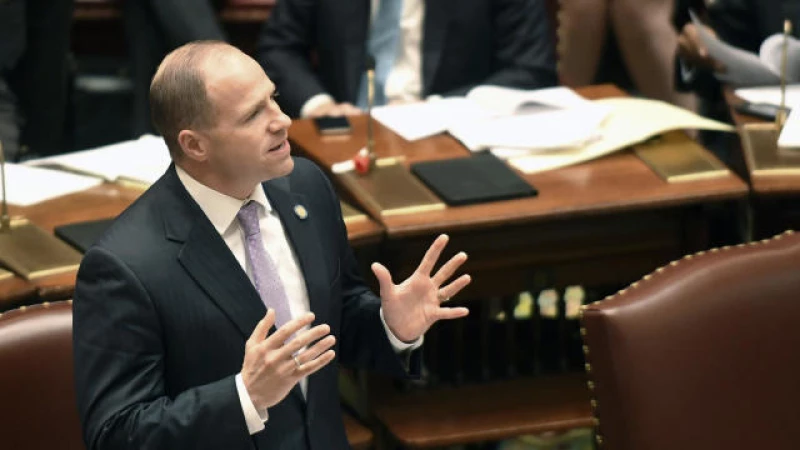
Democratic state Sen. Timothy Kennedy on Tuesday won a special election for the New York congressional seat vacated by Democrat Brian Higgins.
Kennedy easily beat Republican Gary Dickson for the upstate New York seat, helped by a 2-to-1 Democratic registration advantage in the district, which includes Buffalo, Niagara Falls and several suburbs.
Kennedy has been in the state Senate since 2011. Describing Washington as "chaotic and dysfunctional," he said he said that in Congress, he'd focus on reproductive rights, immigration and stronger gun laws like those passed in New York after a 2022 mass shooting at a Buffalo supermarket.
"We need to elect pro-democracy, anti-MAGA candidates all around the country this November," Kennedy said in a victory speech, "and it starts here in this room in Buffalo, New York, tonight."
Registration wasn't Kennedy's only advantage. The Democrat raised $1.7 million as of April 10, compared with Dickson's $35,430 total. Kennedy spent just over $1 million in the off-season election, compared with $21,000 for Dickson as the candidates worked to remind voters to go to the polls.
Kennedy's term in Congress will continue for the remainder of the year. He is set to appear on the ballot for the upcoming general election this autumn, facing Republican attorney Anthony Marecki. Former town supervisor Nate McMurray, who had intended to challenge Kennedy in a Democratic primary in June, announced on social media that he had been removed from the ballot by elections officials due to insufficient signatures.
Earlier this year, the GOP's slim House majority faced a setback in a closely contested special election in the Long Island area following the expulsion of New York Republican George Santos from Congress. The race, which was won by Democrat Tom Suozzi, was seen as a test of the parties' strategies on immigration and abortion for the general election.
Dickson, a retired FBI special agent, recognized the difficulties of running in the upstate district when he declared his candidacy at the end of February, emphasizing that he wanted to offer voters a choice. While he expressed support for Trump as the Republican presidential nominee, he described his own political views as leaning more towards the center.
Despite conceding the race, Dickson reassured his supporters that he had no regrets about running.
Voting occurred with Trump on trial in New York City in the first criminal trial of a former American president and the initial of four prosecutions involving Trump to go before a jury.







